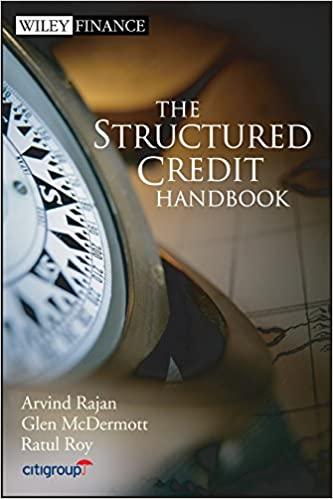Question
Consider the following bank balance sheet (fixed rates and pure discount securities unless indicated otherwise). Interest rates on liabilities are 10 percent and on assets
Consider the following bank balance sheet (fixed rates and pure discount securities unless indicated otherwise). Interest rates on liabilities are 10 percent and on assets are 12 percent. Assets Prime-Rate Loans (rates set daily) 2-Year Car Loans 30-Year Mortgages Total Assets $m Duration (years) Liabilities and Equity Super Now Checking Accounts (rates set daily) 6-Month Certificates of Deposit 3-Year Certificates of Deposit Total Liabilites $m 100 40 25 165 10 Duration (years) 50 65 60 175 1.0 1.0 7.0 ? 1.0 0.5 3.0 ? -- same amount). Equity (E) a. What is the duration of assets, DA, liabilites, DL, and Equity, E. b. The bank will benefit or be hurt if all interest rates rise (assume by the c. Compute the repricing gap for the bank using those assets and liabilities repricing or maturing in 2 years or less. From this information, will the bank be hurt or benefit by a 200 basis point rise in interest rates on assets and liabilities? d. If the bank gets an additional $100 in a 6-month certificate of deposit, what investments (using the above portfolio possibilities) should it make to control interest rate risk ( y = 12 200 basis point change in all interest rates) by changing the duration of its portfolio? State the advantages and disadvantages of using net worth immunization and asset/liability duration as a means of controlling interest rate risk. Define your terms.
Step by Step Solution
There are 3 Steps involved in it
Step: 1

Get Instant Access to Expert-Tailored Solutions
See step-by-step solutions with expert insights and AI powered tools for academic success
Step: 2

Step: 3

Ace Your Homework with AI
Get the answers you need in no time with our AI-driven, step-by-step assistance
Get Started


